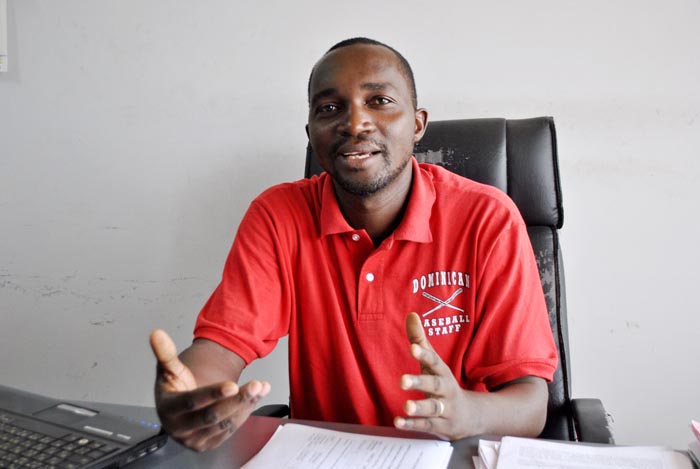The Port of Bujumbura will be soon improved, thanks to an agreement between Japan International Cooperation Agency (JICA) and Burundi.-By Yves Didier Irakoze

Réverien Bahati, Administrative and Financial Director of the Rail, Port and Maritime Authority: “Those who were making the long journey and spending much time along the way will now get their merchandise here in Burundi more easily.” ©Iwacu
International trade will flourish, because Burundi has huge market reach from the North-East of Congo all the way down through Lake Tanganyika. “Those who were making the long journey and spending much time along the way will now get their merchandise here in Burundi more easily.”
Réverien Bahati, the Administrative and Financial Director of the Rail, Port and Maritime Authority believes that the advantages will be enormous, both to the country as a whole and to the users of the Port of Bujumbura in specific. When the Port is improved, Burundi will have the infrastructure to host many large ships. He also emphasizes the increased job opportunities during and after the reconstruction project. “If we expand the Port, it will need a big labor force to work on the shipyard as well as the Container Terminal”, Réverien Bahati says.
The Project of improving the Port of Bujumbura is the result of a study, named ‘Master Plan of Burundian Ports’ funded by the Japan International Cooperation Agency (JICA). A Japanese consultant with expertise in the area of maritime infrastructure executed the study. On the basis of this plan, the new Bujumbura Port is funded in three phases. The first phase of reconstruction concerns a Container Terminal to reduce the cost of transport by rail. Facilitating freight transport, significantly reduces the time spent on international transport by rail or road.
The second phase is the construction of the shipyard. According to Réverien Bahati, the Burundian navy (Ships Park) was built in the 1900’s and repair is very expensive. A new shipyard, where ships are built or repaired, will therefore be built at the Port of Bujumbura.
The third phase is a channel for water coming from Ruvumera in Buyenzi quarter leading through the harbor basin of Bujumbura Port. “Big ships need a big draught to avoid the ship from sinking in the sand. The channel will prevent the government to spend large amounts of money on dredging. This water is full of sand and other waste that causes the lake to fill up and strand the cargo ships.”
Investors or operators in the business of freight transport will be attracted by the improvement made by the Port of Bujumbura, Réverien Bahati believes. He mentions that the renovation works will start this September 2014 and is expected to finish in 2016.



















 IWACU Open Data
IWACU Open Data

